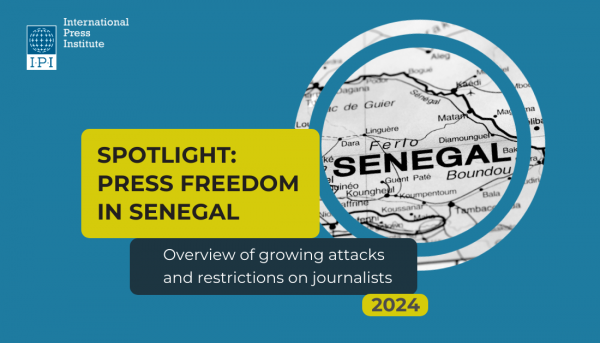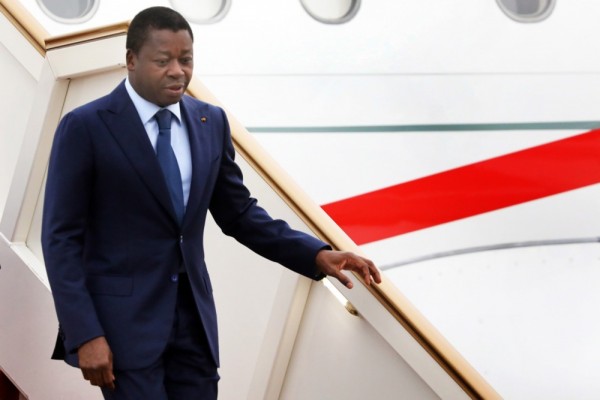The International Press Institute (IPI) expresses concern over a recent series of forced suspensions of radio and television broadcasters by local authorities in the Democratic Republic of the Congo as well as by the March 23 Movement (M23) rebel group operating in the country. At least 11 broadcasters have been closed or had programs suspended by provincial authorities or M23 in the last six months.
Most recently, on February 14, 2023, OLPA (Observatory for Press Freedom in Africa) reported that M23 suspended at least six media outlets – Radio Télévision Communautaire Horizon (RTC Horizon), Radio Communautaire Ushirika (RACOU), Radio Alliance, Radio La Vérité, Radio Télévision Évangélique pour le Développement Hermon (RTEDH) and Radio Union pour la Paix et la Promotion des Droits de l’Enfant (UPDECO) – from broadcasting for 60 days. M23 is a Rwanda-backed rebel group occupying several localities in the DRC’s North Kivu province.
According to OLPA, M23 alleged that the suspended radios stations aired programs that were inciting hatred. The rebel movement’s leaders have also imposed a requirement on the local media to give one hour of airtime per week for propaganda purposes.
Earlier, on February 4, 2023, M23 forces raided the community radio station Radio Communautaire pour la Paix de Bashali (RCPB) in Kitshanga, a region located about 170 km from the city of Goma. The rebels destroyed the premises and took away some broadcasting equipment. Out of fear for their life, the staff of the radio station went into hiding.
Pressure from provincial authorities
In other parts of the country, the closure of media outlets by the provincial authorities has been described by local media rights defenders and the country’s broadcast regulator as an abuse of power.
On January 9, 2023, Pascal Ernest Mulumba Kalenda, the provincial minister of communication and media of the Province of Lomami, in the central region of DRC, indefinitely suspended Radio Tokomi Wapi. According to OLPA, the radio was accused of not respecting the terms of reference, and not respecting journalistic ethics. However, the radio has rejected those allegations.
According to the DRC media legislation, le Conseil Supérieur de l’Audiovisuel et de la Communication (CSAC), the national media regulatory body, is the institution mandated to take action in the case of violation of regulatory rules. However, local authorities have in many cases asserted this power, in part due to the regulator’s absence at the local level.
“In fact, the absence of the public media regulator in several provinces leaves room for the political and administrative authorities to resort to an old law that gives them the possibility of taking precautionary measures against media that are deemed too critical”, OLPA Executive Secretary Kabongo Mbuyi told IPI. “It should also be noted that 80 percent of privately owned Congolese media belong to political operators and it is not excluded that during major political issues, it is the media that pay the price with attacks on journalists or even closures directly targeting a radio or television station.”
Series of closures
The suspension of Radio Tokomi Wapi by provincial authorities was the latest in a series of broadcaster suspensions in DRC in the past six months. Two privately owned media channels, Radio Television Losanganya (RTL) and Radio Télé Grand Tam-Tam Sankuru (RTGTS), operating in Lodja, in the province of Sankuru in central DRC, were indefinitely suspended on October 25, 2022, by Bono Emakitshi, the administrator of the territory of Lodja. The radio was accused of inciting hate and a lack of ethics.
A third radio station, Radio Liberté Sankuru, was also sanctioned. However, this radio station has not been broadcasting for several years.
On September 17, Jules Lodi Emongo, governor of Sankuru province, ordered the suspension of two other privately owned radio stations – Radio Ekitela and Radio Numbampela – based in the city of Lomela.
In all of these cases, the broadcasters in question are privately owned and appear to have been critical of public leaders or authorities. Only three of the five radio stations suspended by local authorities – Radio Ekitela and Radio Numbampela – have resumed broadcasting activities, in December, and Radio Tokomi Wapi, on February 7, 2023, according to OLPA. In another case, Sarah FM in the province of Equateur has been closed down for two years now.
Regulator calls suspensions an ‘abuse of authority’
IPI raised concerns about the suspension of media houses by local authorities directly with CSAC, the DRC media regulator.
‘’The closure of certain radio and television stations in some provinces by local authorities is an abuse of authority and ignorance of the law”, Oscar Kabamba, rapporteur and spokesperson of the CSAC told IPI. “Only the CSAC is empowered by law for such action. This situation is also due to the fact that the CSAC has not had sufficient means to be delocalized in the provinces.”
The pattern of broadcaster suspension in the DRC threatens the public’s right to information, IPI Director of Advocacy Amy Brouillette said.
“We condemn the pressure on media outlets by authorities and rebel groups in the DRC. Instead of restricting the public’s access to news sources, authorities should promote and protect press freedom and the role independent media plays in supporting democracy”, Brouillette said. “Authorities should therefore stop closing down media houses and enable citizens to exercise their right to access information.”



